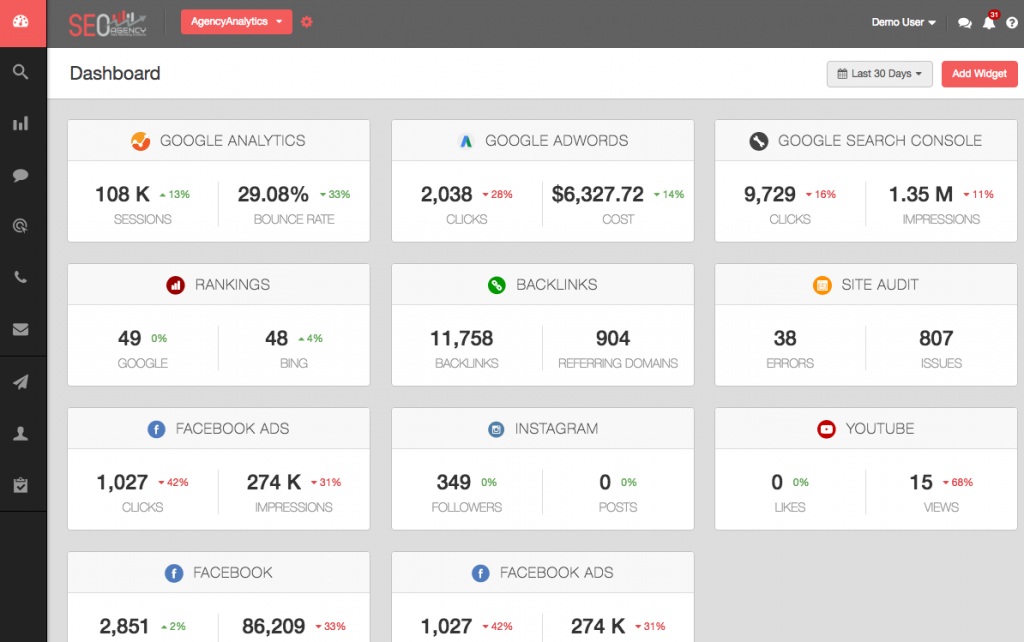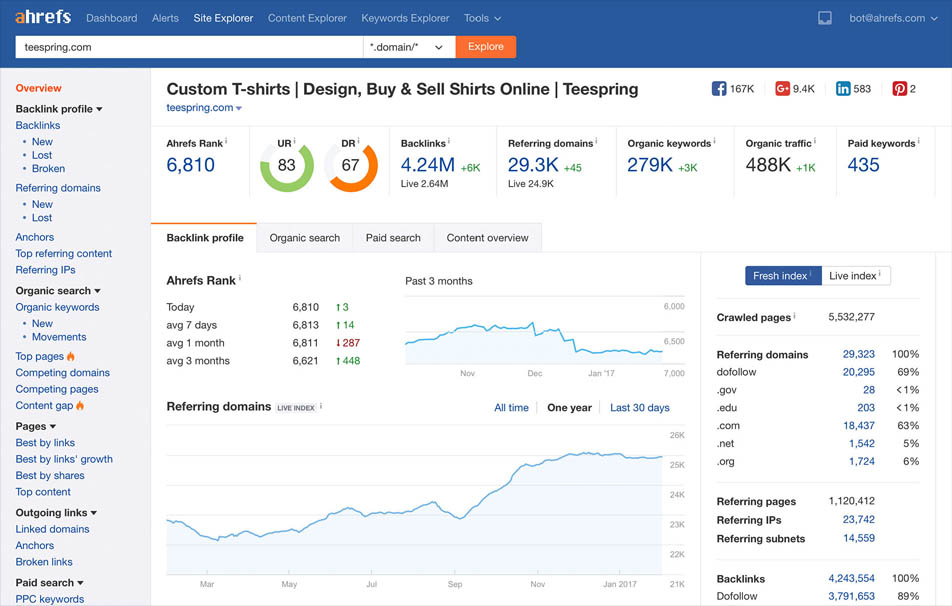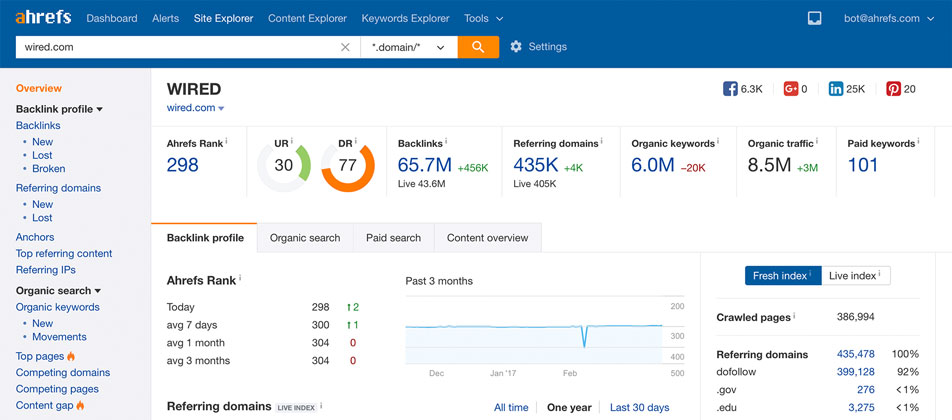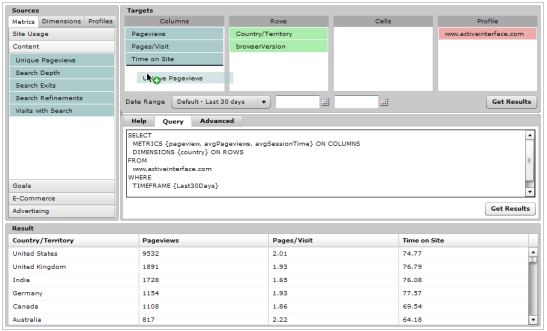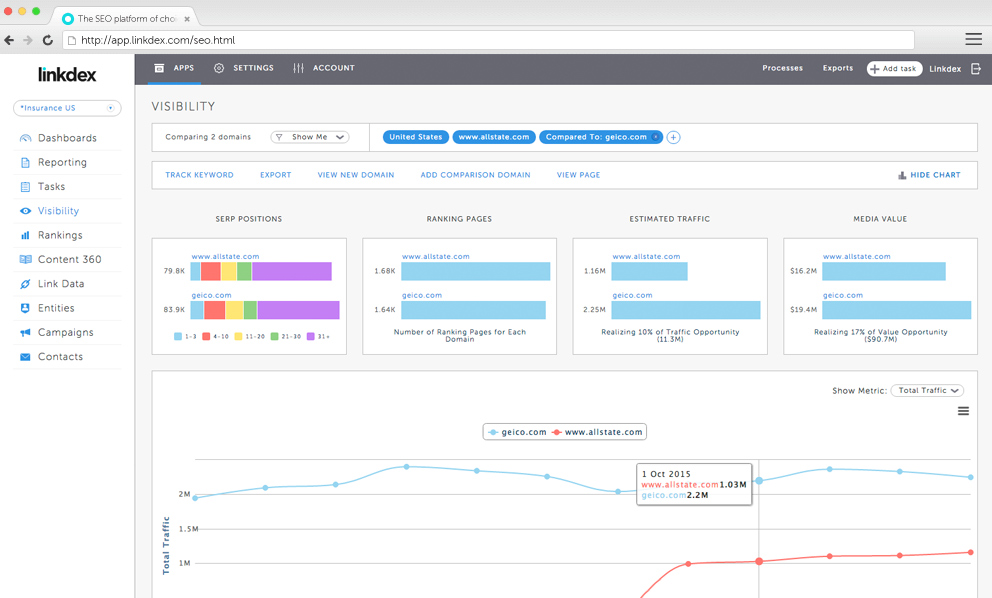Your clients want to know that the SEO strategy you’re using for them is working, so you create an SEO report that showcases all of the important information they’re after. You should be including things like keyword ranking, organic traffic, and their earned links; however, creating such a report is time-consuming and overwhelming. This is especially true when you’re creating reports for several clients at once (as an SEO Agency trust us on this one!) or if your business has many different layers that need separate analysis.
When all is said and done, this is why consolidating your information is key. Have no fear; we’re here to help you. We’ve compiled a list of the four essential tools that you’ll need to craft an SEO report that will impress your clients. You can use more than one if you wish, but each of these tools should work on their own to get you the report you need to push your SEO strategy forward.
Agency Analytics
This is hands-down our number one pick for tools to create an SEO report; especially as an agency (imagine that). They tool can connect with email marketing tools to pull data, social, call tracking, give you an SEO audit right away, and more. For example, when looking at an SEO Audit, for example, you can really drill down to all of your different categories. If you see that there are 4 titles with duplicate content, click on that to see the titles. The best part is that you can save all of your SEO Reports right there in the dashboard so that everything is ultra-organized. Below is a screenshot of what the Overview Dashboard looks like:
Ahrefs
We all need to know which keywords are ranking, and there are plenty of those types of tools out there to help, but Ahrefs brings you keyword ranking information and so much more. Three notable features of the tool include:
Keywords Explorer
One of the main tools that come along with this platform is the keywords research tool. You’re able to generate thousands of suggestions for keywords, and every month the tool is updated to keep you on point. It uses advanced metrics that are included on the reports you receive that show the number of clicks for each keyword as well as the percentage of clicks per search. This tool also gives you insight into the metrics of other top-ranking pages to see their positions so you can analyze where you are and where you need to go when it comes to identifying and acting on important keywords.
Site Explorer Tool
Have you ever questioned what your client’s competitors are doing to improve their SEO strategy? With this tool, you’ll now have access to that information. You’ll be able to take a look at their organic traffic and learn which keywords they’re ranking high for. Don’t feel like doing the hard work of seeing which words they rank for that your client doesn’t? The site explorer tool does this for you with the “content gap” feature:
Backlink Checker
Having a strong backlink profile is imperative to add to your SEO report. Ahrefs has one of the largest backlink index available, with nearly 12 trillion links within it. The reports from Ahrefs show the growth of a client’s backlink profile over a period of time, and there’s an anchor text analysis that lets you know how you can strengthen your profile. This feature also alerts you for any possible negative SEO attacks on anchor texts and keywords. You can even see how the links your client has gained and lost affect their rankings.
Again, these are just three of the several features that Ahrefs has to help you create your SEO reports. Visit their official website for more specifics.
Shufflepoint
Shufflepoint allows you to takes all of your Google Analytics information and drops the report into Excel or other applications, so it’s a completely different type of tool than the others on this list. If you’re looking for something that works closely with excel or offers more features for organization, this is a great option.
Shufflepoint also provides with you templates that you can use, or you can create your own templates, and you can edit and add information as needed, so nothing has to be final when you export to Excel. The platform has an automatic feature that automatically updates all the data in real time. You’ll never have to recheck the data after you’ve started a report again!
Linkdex
Linkdex re-crawls through Majestic and gets you the most accurate data possible. It will remove any links within Majestic that are not seen as influential links. In fact, Linkdex brags that their platform is like getting “Majestic link data on steroids.” One of the best parts of this tool is the ability it gives you to see if a link you’re using still exists.
Linkdex also does all the research work for you by creating a timeline chart that showcases the links that have been built over a period of time. This way, you’ll be able to incorporate this graph into your report to show the client a visual of all the backlinks that have been built.
Analytics Canvas
When you have large clients that have multiple Google Analytics accounts, moving back and forth through all of these profiles can be time-consuming. Analytics Canvas allows you to combine all of these profiles under one dashboard. You can look at these profiles as one, or separate the data for individual client profiles. And you can pull data from other sources as well. Analytics Canvas can be connected to AdWords, Facebook, and even Bing Ads. It also allows you to pull data from social media and mobile ad tracking.
After you’ve pulled all the data and organized it, you can export the spreadsheet and graphs into an Excel spreadsheet. Like other tools on this list, you’re also able to automate your process via schedules.
The Takeaway
Keeping up with several clients’ SEO reports can be a time-consuming task that’s also overwhelming at times. You want to create the best and most informative report for your client’s viewing. Thankfully, there are tools available to cut your research time in half. Simply using one of these tools will make creating your SEO reports a breeze, you’ll never go back to multiple spreadsheets.
What tools do you use to keep all of your data under one roof? Let us know your experiences and your thoughts in the comment section below.
Image Credit: All screenshots taken by author June, 2017
Feature Image Credit: seoexpertreport.com


